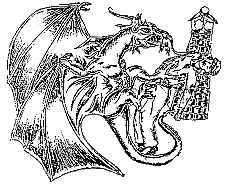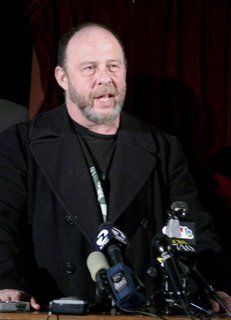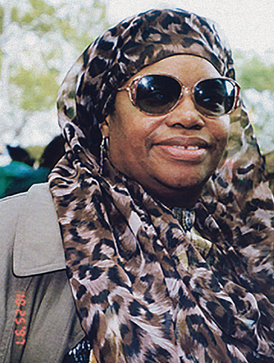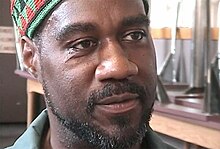
The United Federated Forces of the Symbionese Liberation Army was a small, American militant far-left organization active between 1973 and 1975; it claimed to be a vanguard movement. The FBI and wider American law enforcement considered the SLA to be the first terrorist organization to rise from the American left. Six members died in a May 1974 shootout with police in Los Angeles. The three surviving fugitives recruited new members, but nearly all of them were apprehended in 1975 and prosecuted.

The Black Liberation Army (BLA) was an underground Marxist-Leninist, black-nationalist militant organization that operated in the United States from 1970 to 1981. Composed of former Black Panthers (BPP) and Republic of New Afrika (RNA) members who served above ground before going underground, the organization's program was one of war against the United States government, and its stated goal was to "take up arms for the liberation and self-determination of black people in the United States." The BLA carried out a series of bombings, killings of police officers and drug dealers, robberies, and prison breaks.
David Gilbert is an American radical leftist who participated in the deadly 1981 robbery of a Brinks armored vehicle. Gilbert was a founder of the Columbia University chapter of Students for a Democratic Society and became a member of the Weather Underground. Gilbert, who served as the getaway driver in the robbery, was convicted under New York's felony murder law in the killing by co-defendants of two Nyack, New York police officers and a Brink's security guard.

Mutulu Shakur was a New African activist and a member of the Black Liberation Army who was sentenced to sixty years in prison for his involvement in a 1981 robbery of a Brinks armored truck in which a guard and two police officers were murdered.

The black power movement or black liberation movement was a branch or counterculture within the civil rights movement of the United States, reacting against its more moderate, mainstream, or incremental tendencies and motivated by a desire for safety and self-sufficiency that was not available inside redlined African American neighborhoods. Black power activists founded black-owned bookstores, food cooperatives, farms, media, printing presses, schools, clinics and ambulance services. The international impact of the movement includes the Black Power Revolution in Trinidad and Tobago.

Sundiata Acoli is an American political activist who was a member of the Black Panther Party and the Black Liberation Army. He was sentenced to life in prison in 1974 for murdering a New Jersey state trooper. Acoli was granted parole in 2022 at the age of 85.

The Black Guerrilla Family is an African-American black power prison gang, street gang, and political organization founded in 1966 by George Jackson, George "Big Jake" Lewis, and W.L. Nolen while they were incarcerated at San Quentin State Prison in Marin County, California.

Marilyn Jean Buck was an American Marxist and feminist poet who was imprisoned for her participation in the 1979 prison escape of Assata Shakur, the 1981 Brink's robbery and the 1983 U.S. Senate bombing. Buck received an 80-year sentence, which she served in federal prison, from where she published numerous articles and other texts. She was released on July 15, 2010, less than a month before her death at age 62 from cancer.

Muntaqim v. Coombe, 449 F.3d 371, was a legal challenge to New York State’s law disenfranchising individuals convicted of felonies while in prison and on parole. The plaintiff, Jalil Abdul Muntaqim who was serving a life sentence at the time, argued that the law had a disproportionate impact on African Americans and therefore violated Section 2 of the federal Voting Rights Act as a denial of the right to vote on account of race.

Kuwasi Balagoon, born Donald Weems, was an American political activist, anarchist and member of the Black Panther Party and Black Liberation Army. Radicalised by race riots in his home state of Maryland growing up, as well as by his experiences while serving in the US Army, Weems became the black nationalist known as Kuwasi Balagoon in New York City in the late 1960s. First becoming involved in local Afrocentric organisations in Harlem, Balagoon would move on to become involved in the New York chapter of the Black Panther Party, which quickly saw him charged and arrested for criminal behaviour. Balagoon was initially part of the Panther 21 case, in which 21 panthers were accused of planning to bomb several locations in New York City, but although the Panther 21 were later acquitted, Balagoon's case was separated off and he was convicted of a New Jersey bank robbery.
Bashir Hameed was a member of the Black Panther Party and the Black Liberation Army.

Stuart Hanlon is an attorney based in San Francisco, California who represented San Francisco Police Chief Greg Suhr, Geronimo Pratt and members of the Symbionese Liberation Army.
The San Francisco 8 were eight former Black Panthers who were arrested in January 2007 for their alleged involvement in the 1971 murder of Sgt. John V. Young at Ingleside Police station. Herman Bell and Jalil Muntaqim were already incarcerated. Richard Brown, Richard O'Neal, Ray Boudreaux, and Hank Jones were arrested in California, Francisco Torres was arrested in Queens, New York, and Harold Taylor was arrested in Florida. Bail amounts were originally set between three and five million dollars each.
Dhoruba al-Mujahid bin Wahad is an American writer and activist, Black Panther Party leader and co-founder of the Black Liberation Army. Dhoruba, in Swahili, means "the storm".
Veronza Leon Curtis Bowers Jr. is a former member of the Black Panther Party. He was sentenced to life imprisonment on the charge of first degree murder of U.S. park ranger Kenneth Patrick at Point Reyes National Seashore in 1973. He is currently incarcerated in a Federal correctional institution in North Carolina.
Marshall "Eddie" Conway was an American black nationalist who was a leading member of the Baltimore chapter of the Black Panther Party. He was convicted in 1971 for the murder of a police officer a year earlier in a trial with many irregularities. In 2014 he was released on parole after an appellate court ruled that his jury had been given improper instructions.
The murder of Brian Moore, a New York City police officer, took place on May 2, 2015, in Queens, New York, where he was shot. Moore died two days later at Jamaica Hospital Medical Center, at the age of 25. His partner, Erik Jansen, was shot at but escaped injury. Demetrius Blackwell was arrested in connection with the shooting, and was formally charged with first-degree murder, attempted first-degree murder, and other charges. On December 19, 2017, Blackwell was sentenced to life in prison with no chance of parole.
Joseph Michael Remiro is an American convicted murderer and one of the founding members of the Symbionese Liberation Army in the early fall of 1973. It was an American leftist terrorist group based in the Bay Area of California. He used the pseudonym or nom de guerre "Bo" while he was a member of the group.

Safiya Bukhari was an American member of the Black Panther Party. She was also the co-founder of the Free Mumia Abu-Jamal Coalition (NYC), the Jericho Movement for U.S. Political Prisoners and Prisoners of War, and was the vice president of the Republic of New Afrika.











